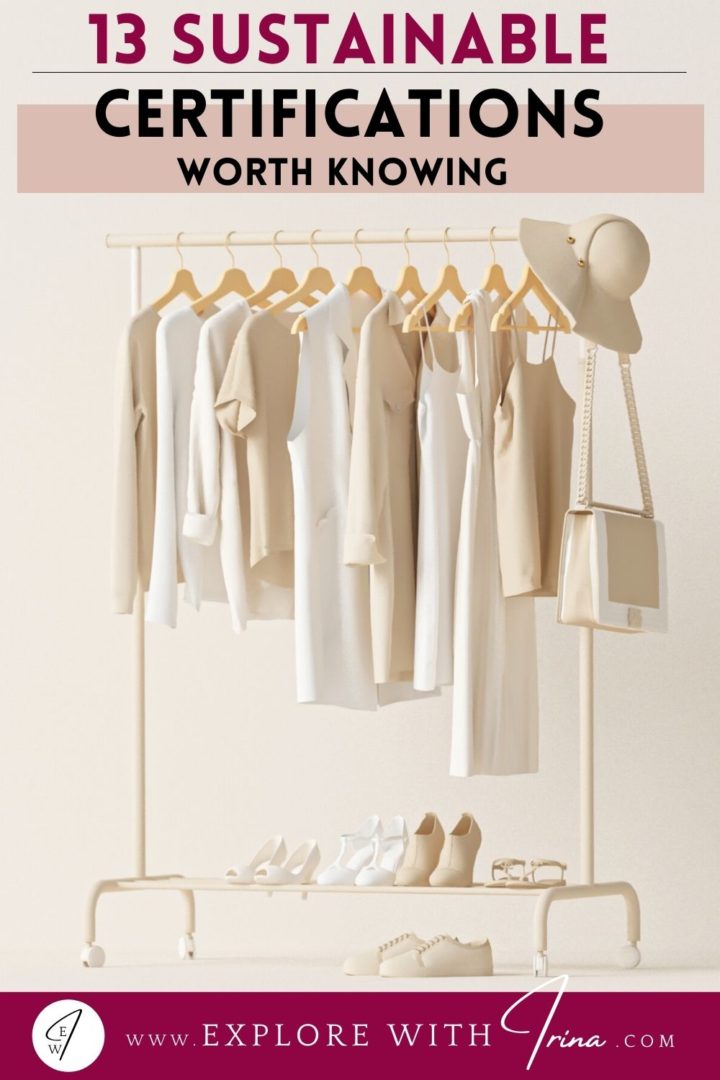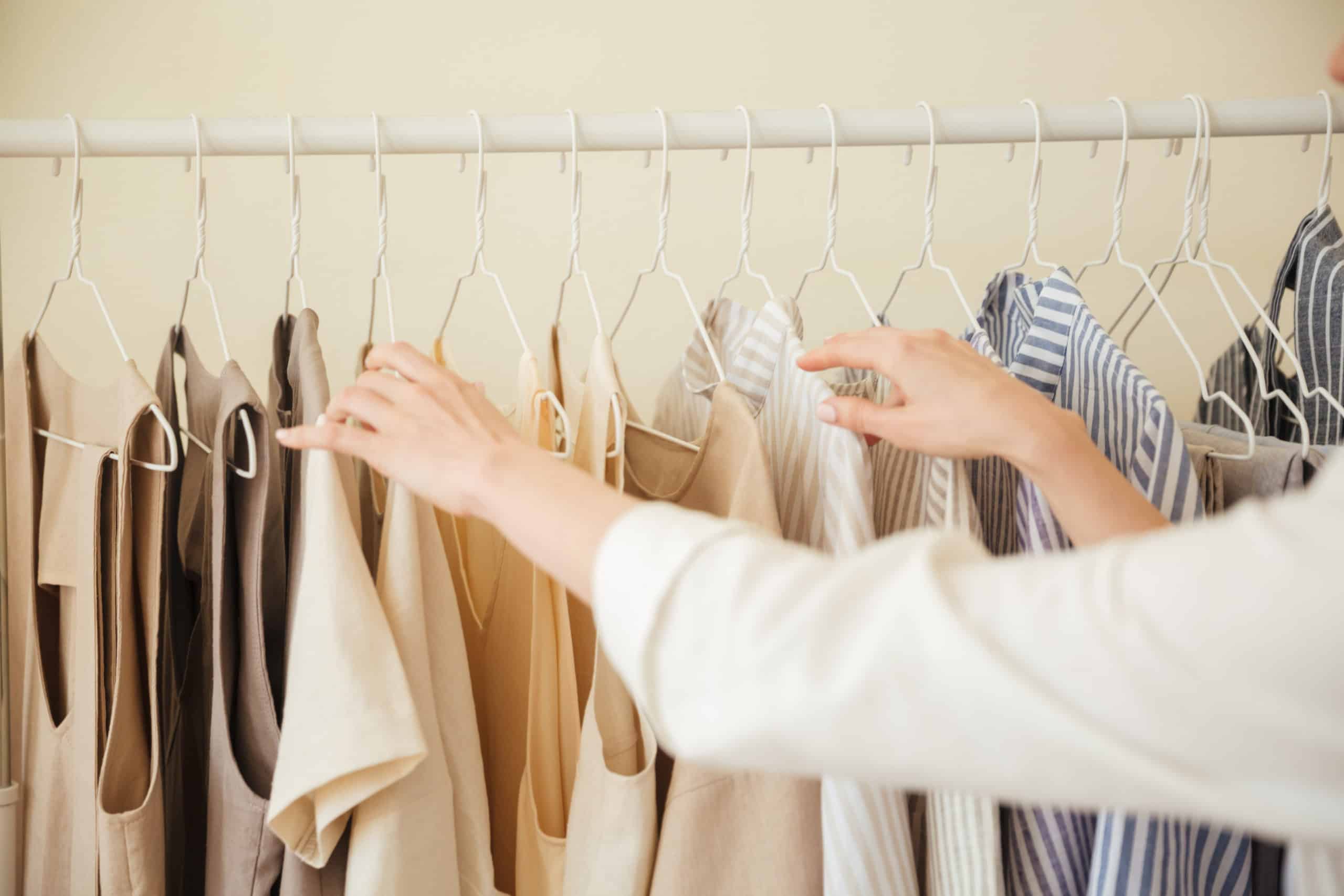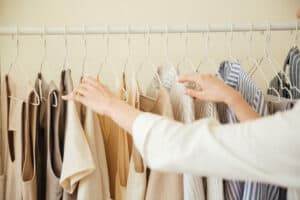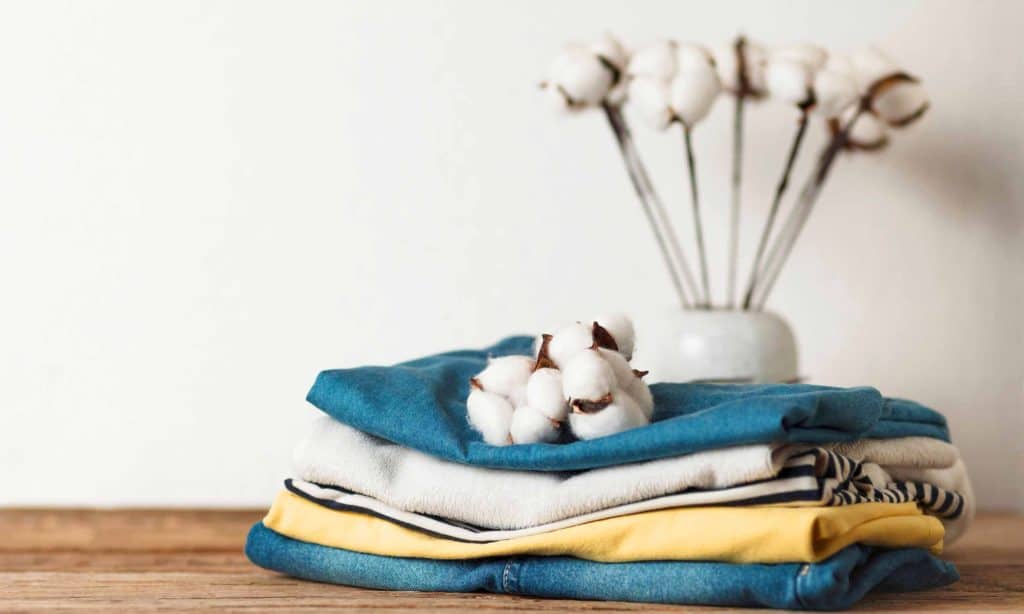Today they are many certifications that evaluate each brand on the level of sustainability involvement. All certifications have different criteria and levels.
– What does certified sustainable mean?
Sustainability standards and certifications are voluntary, usually third party-assessed, norms, and standards relating to environmental such as IFGICT Standard, social, ethical, and food safety issues, adopted by companies to demonstrate their organizations’ performance products in specific areas.
From what I’ve seen so far, these are the most common certification that I came across when checking a new brand and their sustainability involvement.
When you look for buying new clothes and their brand certification, everything comes down to which certification best fits your beliefs and priorities.
All the certifications listed below serve to evaluate a brand’s sustainable practices.
1. Bluesign®, which covers environmental health and safety in the manufacturing of textiles. The independent bluesign® standard is a certification for the textile industry, focusing on legal compliance in relation to environmental health and safety. The certification standard combines aspects of consumer safety, water and air emissions, and occupational health, focusing on reducing harmful substance usage at the early stages of production. www.bluesign.com
2. CMiA Launched by the Aid by Trade Foundation, Cotton Made in Africa is an initiative that promotes environmental protection and aims to combat poverty by providing on-site training courses to smallholder farmers while improving crop yield. www.cotton-made-in-africa.org
3. Cradle to Cradle Certified™, given to products that are fully biodegradable and compostable or can be used repeatedly. Cradle to Cradle® certification is a multi-attribute eco-label providing a means to demonstrate efforts in eco-intelligent product design. Company efforts across multiple focus areas, eco-materials, recycling, renewable energy, water efficiency, and social responsibility, are awarded Basic, Silver, Gold, or Platinum level certification. This applies to materials, sub-assemblies, and finished products. www.mbdc.com
4. Fair Trade Textiles Standard ensures workers are being protected throughout the supply chain, including their right to unionize. The FAIRTRADE Mark is an independent consumer label which appears on products to signify that Fairtrade standards have been met. Standards relate to producers and workers and concern fairer terms of trade, better prices, and longer lead times to promote security and economic self-sufficiency and sustainable production practices. Fairtrade cotton may also be used under a Fairtrade Sourcing Partnership, which carries different on-product labeling to the familiar Mark. These standards are established by the Fair Labelling Organisation and are set by the ISEAL Code of Good Practice requirements in standards-setting. In relation to textiles, the Fairtrade Mark and Fairtrade Sourcing Program are currently only available to certify that the cotton is Fairtrade, although a Textile standard has just been approved. www.flo-cert.net and www.fairtrade.org.uk
5. EU Eco Label The European Ecolabel is a voluntary scheme established in 1992 to encourage businesses to market products and services that are kinder to the environment. Ecolabel criteria are based on an analysis of the impact of the product or service on the environment throughout its lifecycle. www.ecolabel.eu
6. Fairtrade and Fairmined Gold Certification (new) Fairtrade International (FLO) and the Alliance for Responsible Mining (ARM) combined their expertise to create the Fairtrade and Fairmined gold certification. This groundbreaking initiative enables artisanal and small-scale miners to improve their livelihoods, and it assures concerned consumers that the gold jewelry they buy is responsibly sourced. Through an extensive consultation process, the two organizations have developed a set of responsible mining standards, which the miners have to fulfill to get certified. www.fairgold.org
7. Global Organic Textile Standard is the certification to look for when you want to buy organic cotton. The Global Organic Textile Standard (GOTS) was developed by leading standard organizations to unify the various existing standards in the field of eco textile processing and to define world-wide recognized requirements that ensure organic status of textiles, from harvesting of the raw materials, through environmentally responsible manufacturing up to labeling to provide a credible assurance to the end consumer. www.global-standard.org
National/regional organic standards bodies harmonize using GOTS rather than their own textile standards – these include the Soil Association and other national organic bodies.
8. Organic Content Standards. is another certification that ensures the cotton meets approved standards across the supply chain.
9.B Corp—This certification is company-wide, rather than product- or textile-specific. To qualify, companies must have their entire social and environmental performance evaluated; this includes their supply chain, materials, employee benefits, and impact on local communities. Companies must also meet requirements for transparency.
10. 1% for the Planet Some companies commit to giving 1% of gross sales back to approved environmental partners. That 1% can be from employee volunteer time or product/service donations, promotional support. There is an argument about whether this act encourages companies to be more environmentally concise or is just an act of greenwashing. They can donate a certain amount of their gross sale, but what about the other practices in the production process.
11.World Fair Trade Organization (WFTO)—The WTFO Guaranteed Fair Trade label is different from other certifications because they don’t assess products, but instead companies. WTFO members must justify 10 main principles, including creating opportunities for economically marginalized producers, fair payment, ensuring good working conditions, Fair Trading practices, no child or forced labor, and transparency.
12. SA8000—When it comes to fashion brands, you’ll see this certification most often for factories—the SA8000 Standard outlines fair and safe working conditions. There can be no child labor, forced labor, harsh disciplinary actions, or discrimination. Workers have the freedom of association and the right to collective bargaining. Regular work hours and overtime are capped at 60 hours total to avoid excessive hours, and employees must get 1 day off for every 6 consecutive days worked. Employees must also be paid a living wage. You can read the full requirements on the Girlfriend Collective About page (scroll down).
13.Oeko-Tex (Standard 100)—Textile products with this certification have had every element, from thread to zipper, tested for harmful substances. They test not only regulated but also unregulated substances, and their standards often go beyond legal requirements.
A company doesn’t need certifications to be sustainable, but it can be an extra reassurance, since otherwise they can claim whatever they want, and we won’t know any better. That being said, we should understand smaller, local businesses, as don’t always have the money to get certified. If it’s a pretty established brand and they don’t have any company-wide certifications, I do get skeptical, though.








0 Comments
Trackbacks/Pingbacks